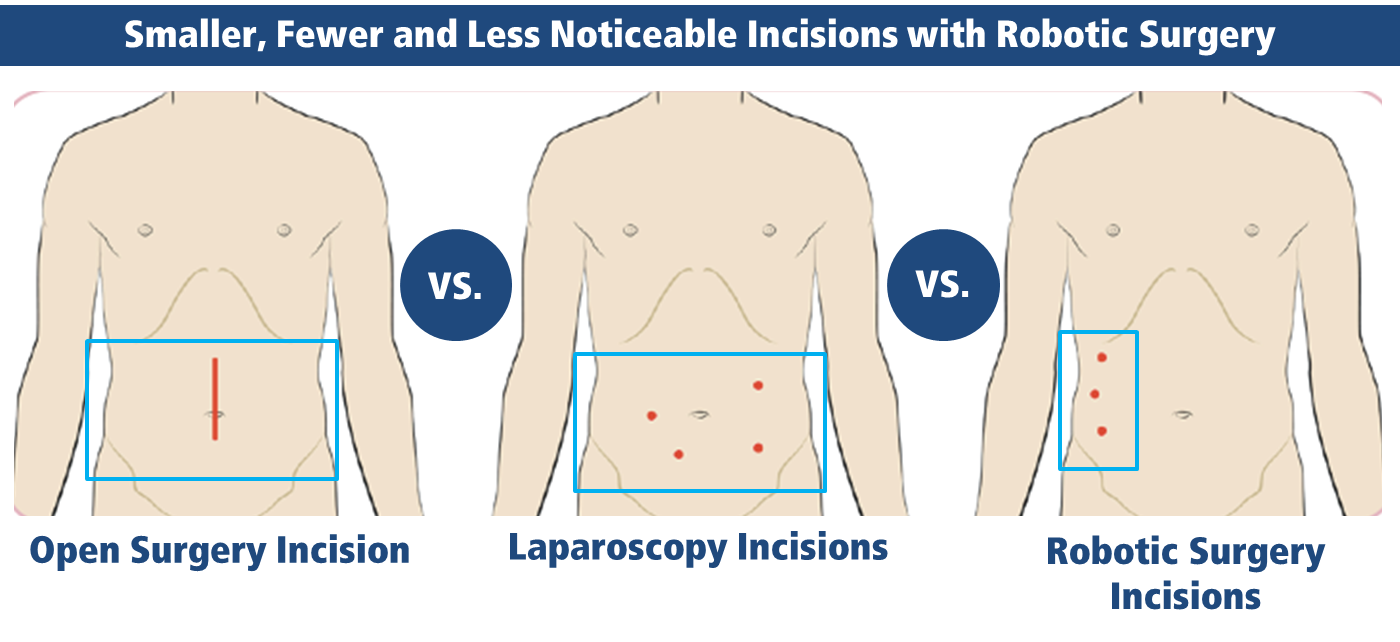Hernia Surgery
Understanding Hernia Surgery Options
When it comes to hernia surgery, there are different techniques available to address this common medical condition. Open, laparoscopic, and robotic hernia surgeries are three primary approaches used by surgeons to repair hernias. Each technique has its benefits and considerations, and understanding these options can help you make informed decisions about your hernia treatment. In this guide, we will provide an overview of open, laparoscopic, and robotic hernia surgeries, empowering you with knowledge and insight into these surgical approaches.
Open Hernia Surgery: Open hernia surgery is a traditional approach where the surgeon makes an incision near the hernia site to repair the hernia. During the procedure, the surgeon manually pushes the protruding tissue back into place and reinforces the weakened abdominal wall with sutures, mesh, or both. Open hernia surgery provides direct access to the hernia, allowing the surgeon to repair it effectively. This technique is suitable for various hernias, including inguinal, umbilical, and incisional hernias.
Laparoscopic Hernia Surgery: Laparoscopic hernia surgery, also known as minimally invasive surgery, involves using small incisions and specialized surgical tools. A laparoscope, a thin tube with a camera and light attached to it, is inserted through one of the incisions. The surgeon views the hernia and surrounding area on a monitor and performs the repair using small instruments inserted through other incisions. The advantages of laparoscopic hernia surgery include smaller incisions, reduced scarring, less post-operative pain, and a faster recovery time compared to open surgery. Laparoscopic surgery is commonly used for inguinal and ventral hernias.
Robotic Hernia Surgery: Robotic hernia surgery is an advanced form of minimally invasive surgery that utilizes a robotic surgical system. The surgeon operates the robotic arms from a console, controlling precise movements with enhanced dexterity and visualization. The robotic system provides a three-dimensional view of the surgical area, allowing for more precise and controlled movements during the procedure. Robotic hernia surgery offers similar benefits to laparoscopic surgery, including smaller incisions, reduced scarring, less pain, and faster recovery. It is particularly beneficial for complex hernias or patients with specific anatomical considerations. It allows hernias that would normally only be possible open, to be performed with minimal invasive techniques.
Choosing the Right Approach: The choice of hernia surgery technique depends on several factors, including the type and size of the hernia, your overall health, and the surgeon's expertise. Your healthcare provider will evaluate your specific condition and discuss the most suitable approach for you. It is important to have an open and thorough discussion with your surgeon to understand the benefits, risks, and expected outcomes of each technique.
Open is historically the fastest and cheapest approach from an operative time point of view. Unfortunately open hernia surgery has larger incisions and more tissue trauma, that all result in longer recovery times. Laparoscopic surgery is great for simple hernias, like uncomplicated inguinal hernias, but the limits of this technique are quickly reached in larger abdominal hernias. Traditionally these larger hernias would only be possible with open techniques. With the advent of robotic surgery, surgeons are finally able to perform these complex hernia cases using minimally invasive techniques.
While robotic surgery is well established internationally as a fantastic tool in hernia surgery, it is still considered experimental in the eyes of South African medical aids. This means while patients in the South African government sector are already benefiting from robotic hernia surgery, the private sector is still unable to fund these cases from medical aids.
Conclusion: Open, laparoscopic, and robotic hernia surgeries are effective approaches for repairing hernias. Each technique has its unique advantages and considerations, and the choice depends on individual factors and surgeon expertise. Your healthcare provider will guide you in selecting the most appropriate approach for your hernia repair. Remember to ask questions, discuss your concerns, and actively participate in the decision-making process to ensure the best possible outcome for your hernia surgery

